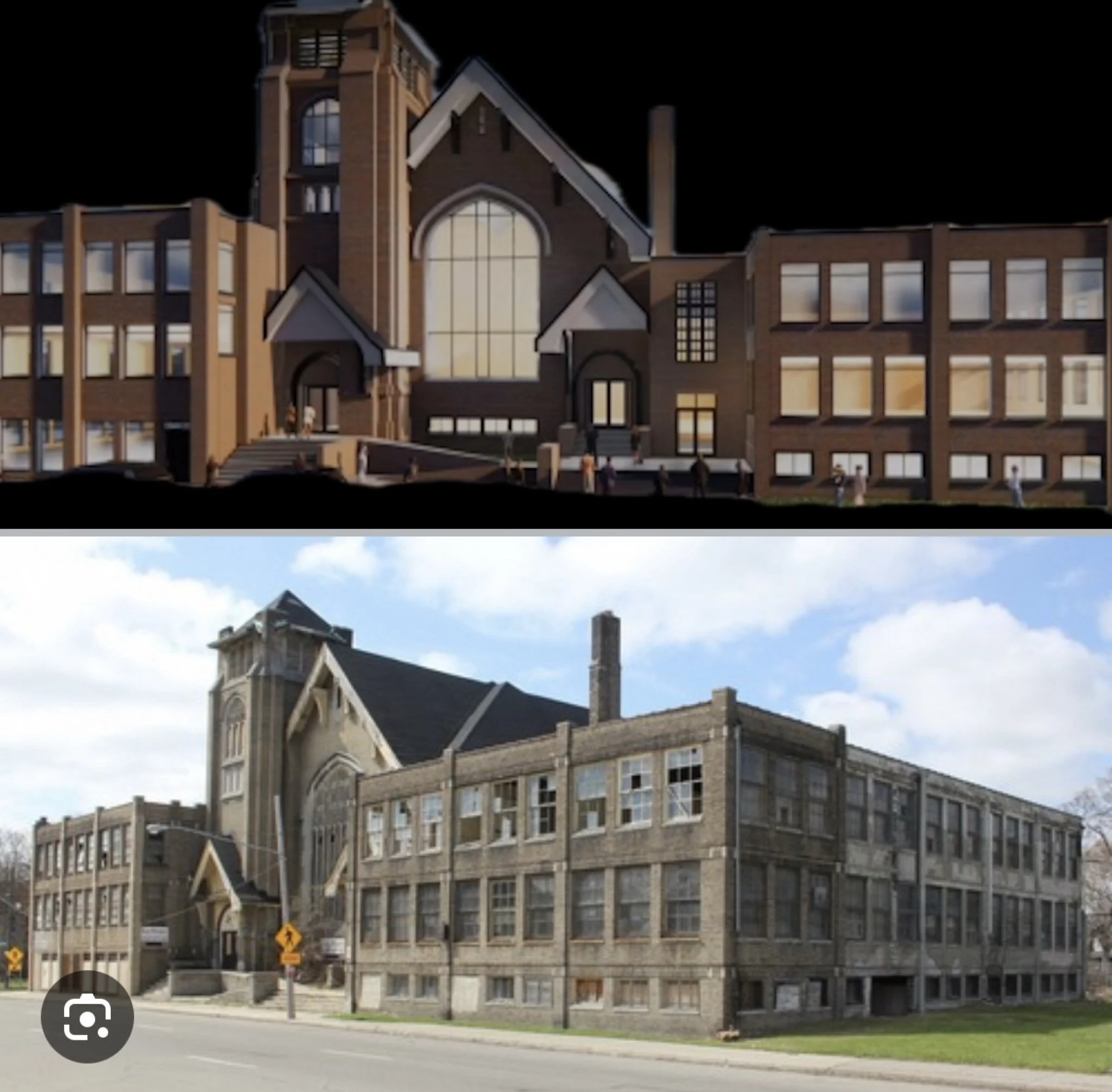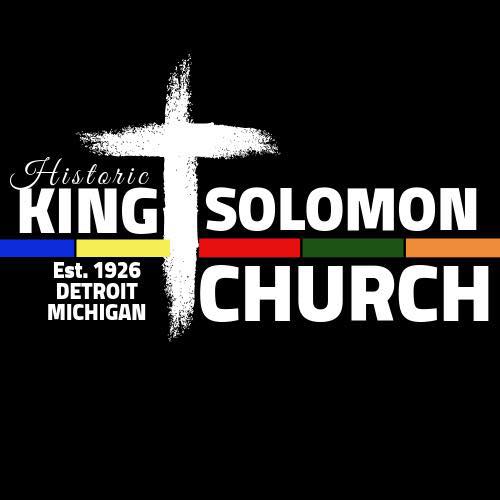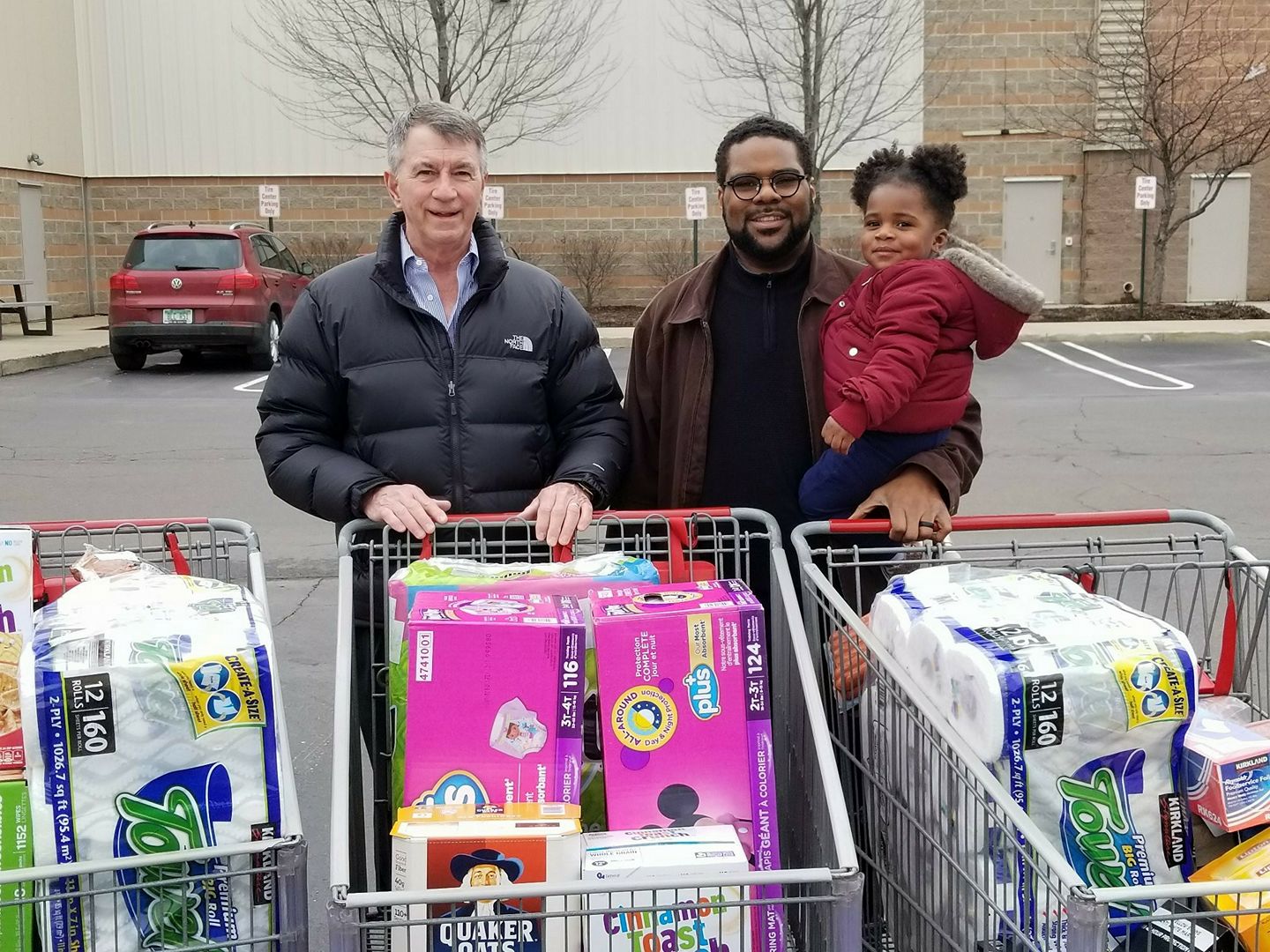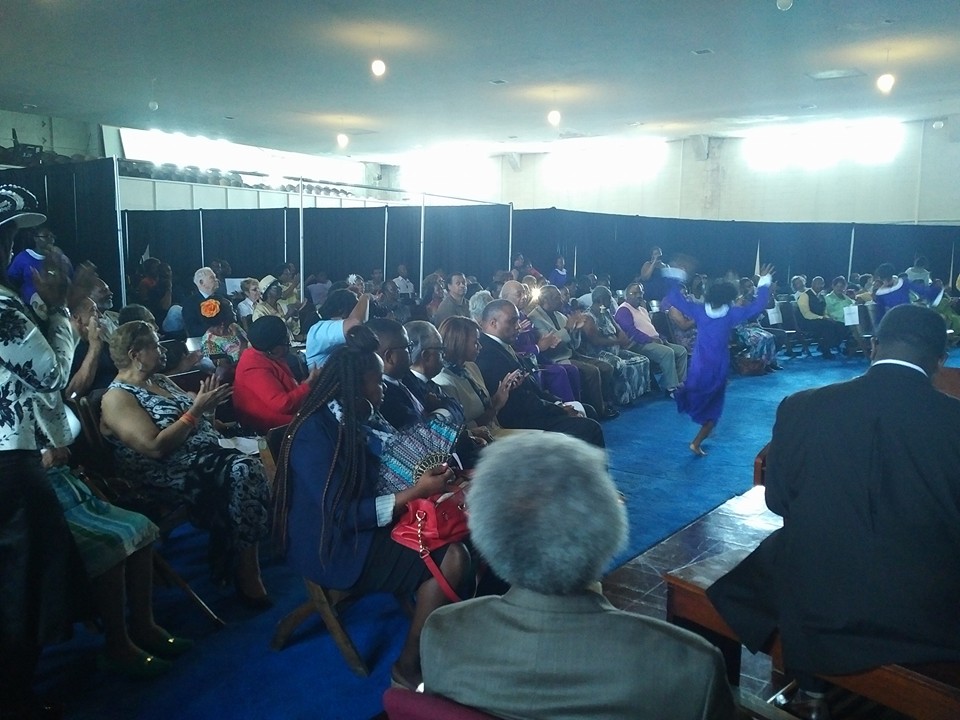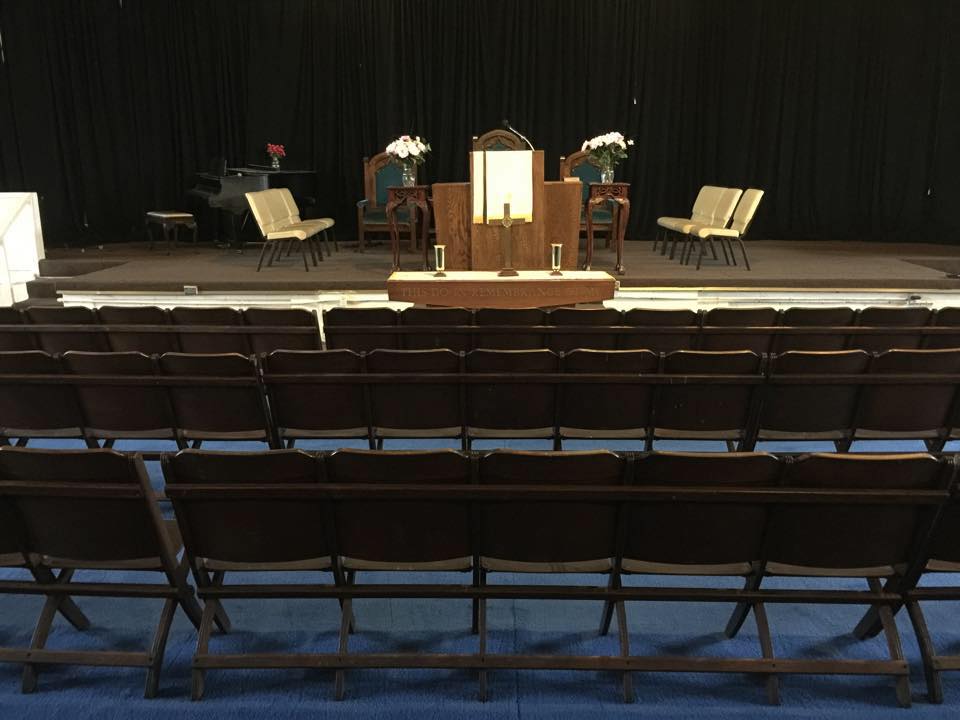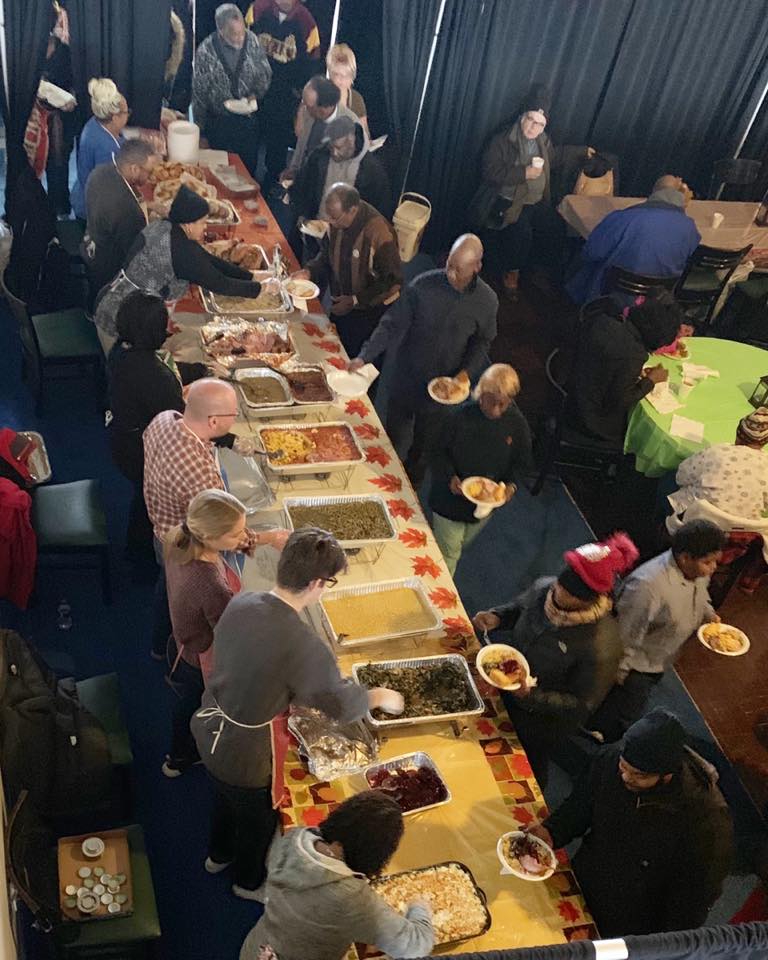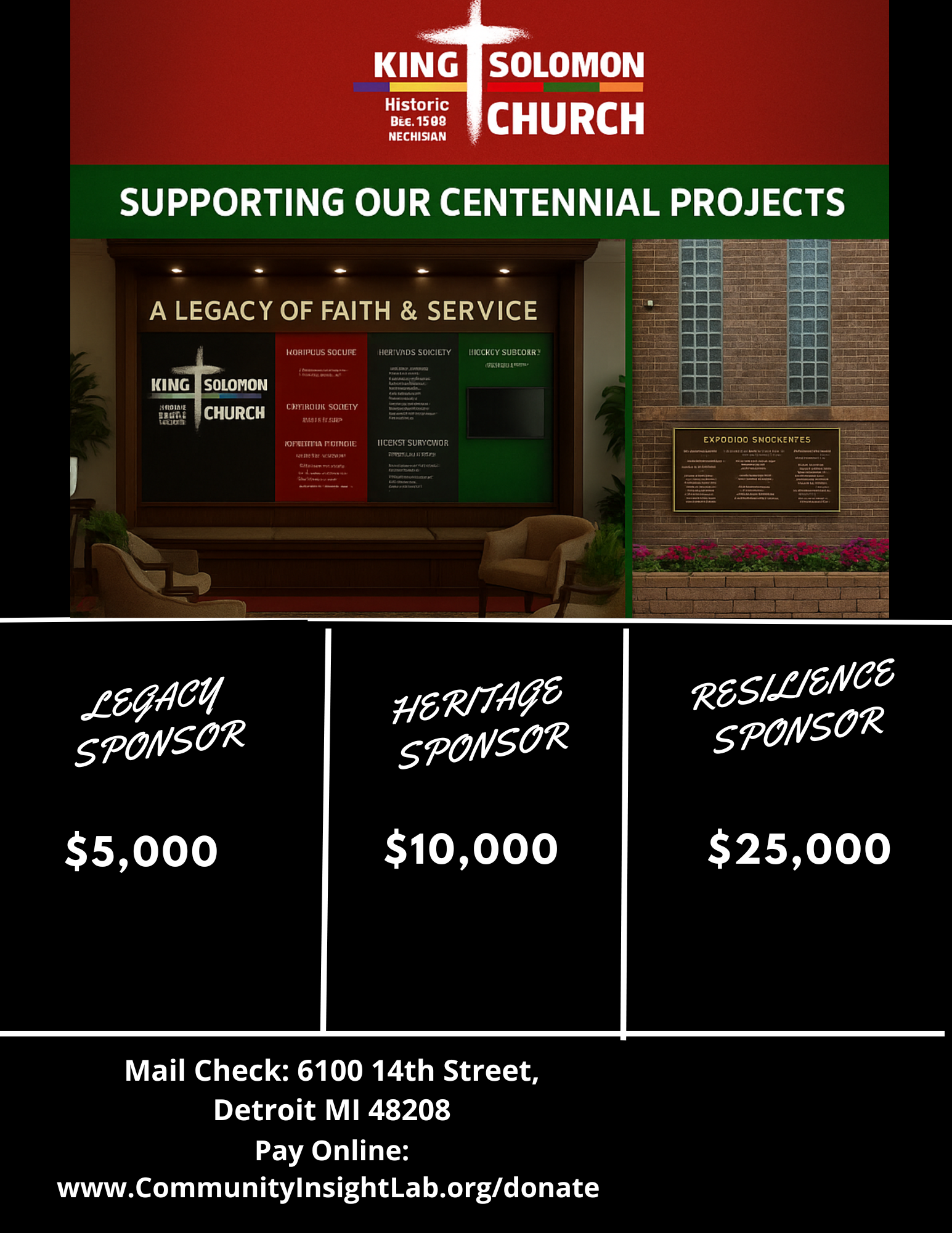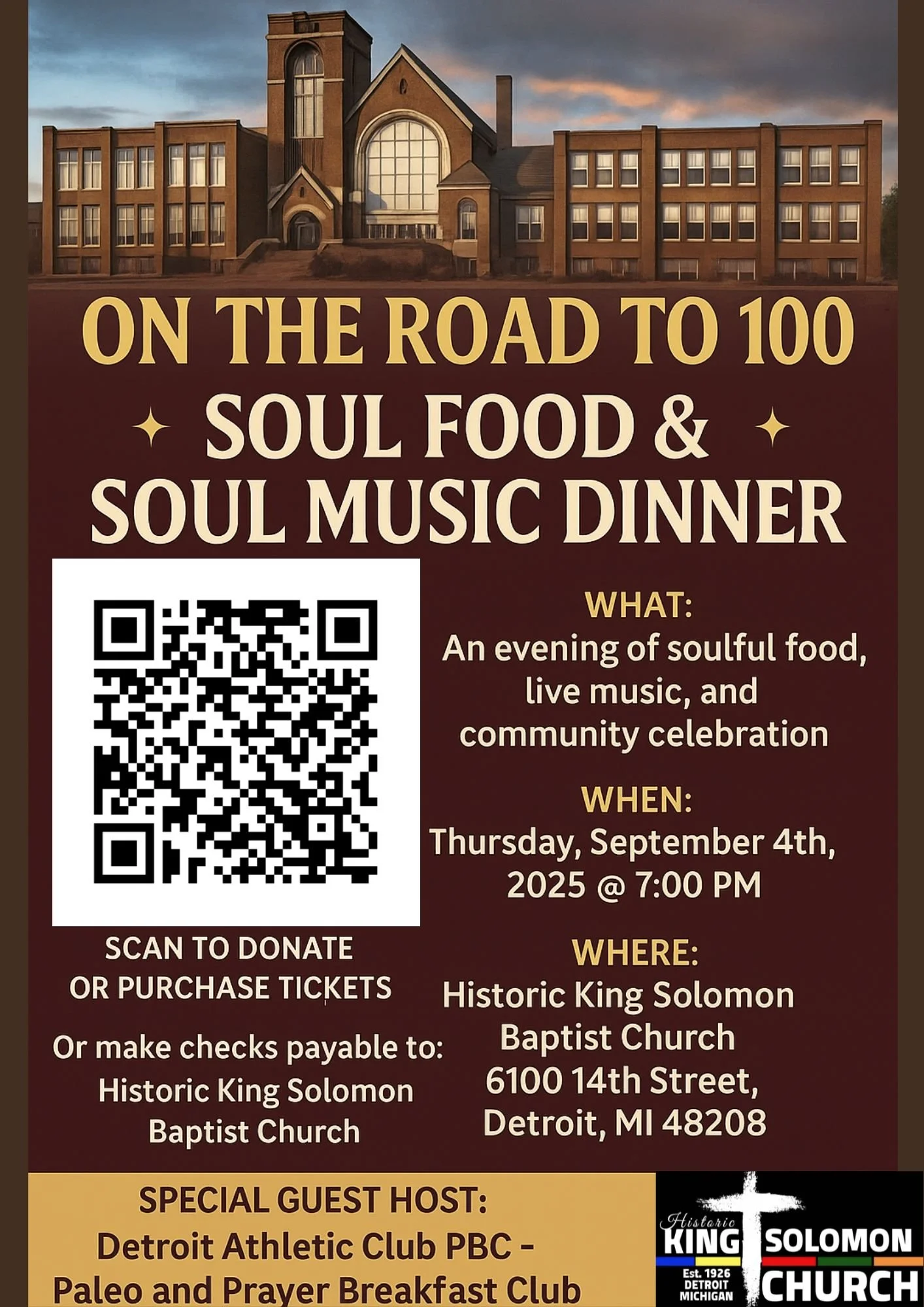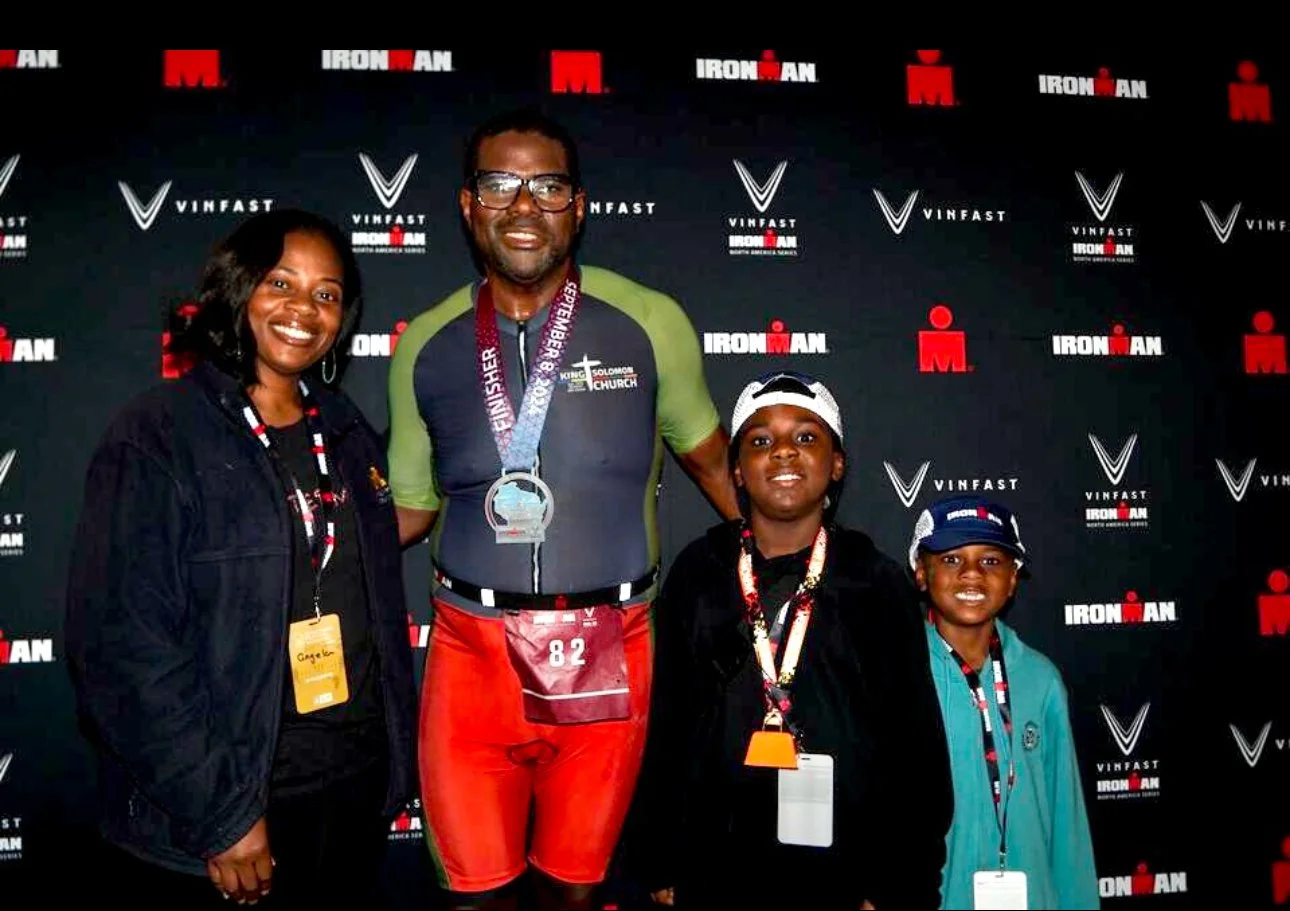
CHURCH MISSION
Our mission at King Solomon is to revitalize the church, community, and spirit of God’s people that suffer from the devastation of global socio-economic inequality. Together as a congregation, we seek to empower and educate the lost and disenfranchised through the example set forth in the gospel of Jesus Christ.
HISTORIC KING SOLOMON MISSIONARY BAPTIST CHURCH
REMEMBERING OUR PAST, CELEBRATING OUR FUTURE.
King Solomon Baptist Church was founded on May 16th, 1926 by the Reverend Moses Williams. The congregation of 11 members held their first services at 1551 Rivard Street, in the heart of Detroit's Black Bottom neighborhood. It took several years for the church to find a permanent location, sometimes moving twice a year, but eventually it settled at Alexandrine and Riopelle Streets in 1929. Through this time, the church continued to grow under the leadership of several pastors.
King Solomon Baptist was growing under new leadership as well. In March of 1944, Dr. Theodore S. Boone was called to become pastor of the church. Reverend Boone, the son of a respected pastor, was already well known throughout the south as prominent black author, historian, and poet. Before he came to King Solomon he had been dean of the Oklahoma School of Religion, a professor of black history at Langston University, a lawyer, and pastored several churches in Texas.
Under Boone new organizations spring up, including a Boy Scout Troop, a large vacation bible school program, orchestra, and religious education classes. As the congregation grew, its members started to move into the neighborhood of Northwest Goldberg where Temple Baptist was located. The church started looking for a new location as it outgrew the church on Delmar.
By 1951 there were over 3,300 members at Temple Baptist, and the buildings at 14th Avenue could no longer hold the congregation. Growth of automobile use and lack of parking made it difficult to accommodate members, many of which were driving from increasingly long distances away. In 1943 the church had purchased a large piece of land on Grand River to use for outdoor revivals. Finding that many of its members were moving into that area, Temple decided to build an enormous new church on the site in 1951.
With King Solomon looking for a new location, and Temple looking to sell, the paths of these two Baptist churches – one segregated white, one almost entirely black – crossed for quite probably the first and only time. In early 1952 it was announced that King Solomon had bought the 14th Avenue properties for $325,000, and would move in once the new Temple Baptist church on Grand River was completed.
When King Solomon Baptist moved to the former Temple Baptist church on 14th Avenue on November 25th, 1951, it gained one of the largest black-owned auditoriums in the city. Within a few short years, Reverend Boone was overseeing a flock of over 1,000 members that was constantly growing. Sunday school services continued in the old church across the street, which also served as a community center for the neighborhood. Youth outreach programs included classes, an indoor roller-skating rink, and a boxing program led by trainer Emmanuel Stewart. Thomas "The Hitman" Hearns got his start at King Solomon, and would go on to win professional boxing's National Golden Gloves award in 1977. Poet Margaret Danner founded the Boone House, a poetry and culture center named for Reverend Boone, at the church in the 1960's. It would attract such noteworthy poets as Dudley Randall and Langston Hughes.
King Solomon also became an important center for gospel music, with such acts as the Reverend James Cleveland, the Five Blind Boys, and The Clouds of Joy performing there over years. In the 1960's record executive Berry Gordy heard three young singers perform at the church, and was so impressed that he arranged for an audition. Mary Wilson, Florence Ballard, and Diana Ross would go on to become The Supremes, one of the most popular musical acts of the decade. In 1968 the Gospel Music Workshop of America was founded at King Solomon, with its first meeting drawing over 3,000.
Thanks in part to its 5,000-seat auditorium, King Solomon Baptist went on to play a major role in the civil rights movement, as speakers could address large audiences. In 1954 Thurgood Marshall, then lead council for the NAACP, spoke at the church immediately following their victory in the Brown V. Board of Education ruling, which overturned segregated schooling. In 1956 US Representative Charles Diggs gave a national radio address about the murder of Emmett Till.
Dr. Martin Luther King Jr. made two appearances at King Solomon; the first at the 78th annual National Baptist Convention of America meeting in 1958, and the second at the National Baptist Congress meeting in September of 1963, having just given his "I have a dream" speech in Washington DC a week earlier. Over 10,000 attend the conference, where King was the keynote speaker and delivered a speech commemorating the 100th anniversary of the emancipation proclamation.
At the other end of the civil rights movement ideology, King Solomon Baptist also hosted speakers like Malcolm X. A few weeks after King's speech, the church held the Northern Grass Roots Leadership Congress. The keynote address "Message to the grass roots," given on November 10th by Malcolm X to a crowd of 3,000, was later described as one of the most influential speeches of his life. It is heavily critical of the non-violent MLK-led civil rights movement and the August march on Washington, favoring a violent revolution. In April of 1964 Malcolm X made another appearance at King Solomon, repeating his "The Ballot or the Bullet" speech he'd given a week earlier. In it he encourage blacks of all faiths and backgrounds to unite and resist oppression by violence if necessary, and join the political process. His presence isn't universally accepted – The church attempted to block his appearance - but having already paid a deposit and advertised it heavily, Malcolm X took the matter to court and prevailed.
King Solomon is now alive and well. with a growing membership and many community programs the once structure that was thought to be a relic is living and breathing in the city of Detroit. The current pastor is the Rev. Charles E. Williams II,
CHURCH ADDRESS
6100 14thstreet
Detroit, Michigan 48208
313-355-2150
thehistoricksmbc@gmail.com
Contact Us
The following is placeholder text known as “lorem ipsum,” which is scrambled Latin used by designers to mimic real copy. Nulla lectus ante, consequat et ex eget, feugiat tincidunt metus. Class aptent taciti sociosqu ad litora torquent per conubia nostra, per inceptos himenaeos. Sed a ligula quis sapien lacinia egestas. Integer tempus, elit in laoreet posuere, lectus neque blandit dui, et placerat urna diam mattis orci. Aliquam bibendum, turpis eu mattis iaculis, ex lorem mollis sem, ut sollicitudin risus orci quis tellus.
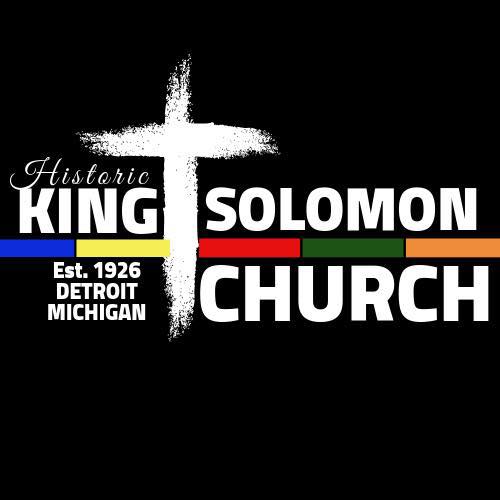
Tune into Service on Sundays at 11:00am
Or Watch archived videos and services
